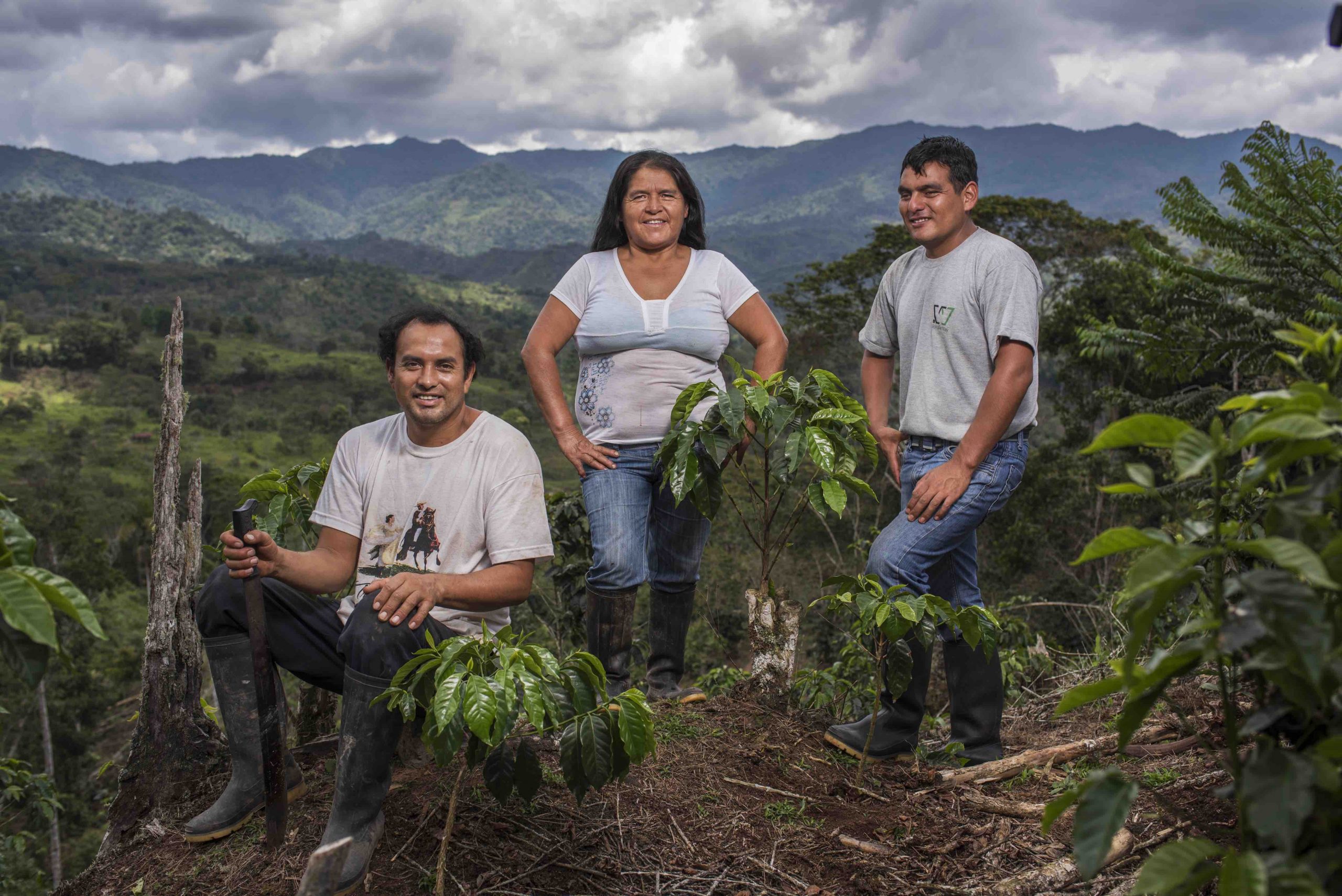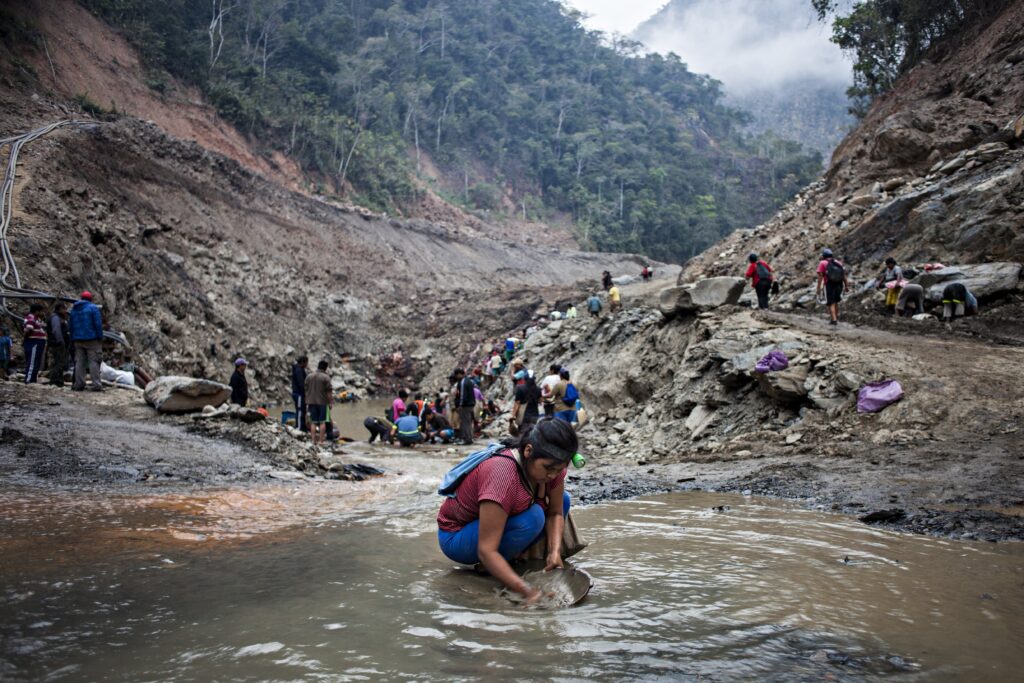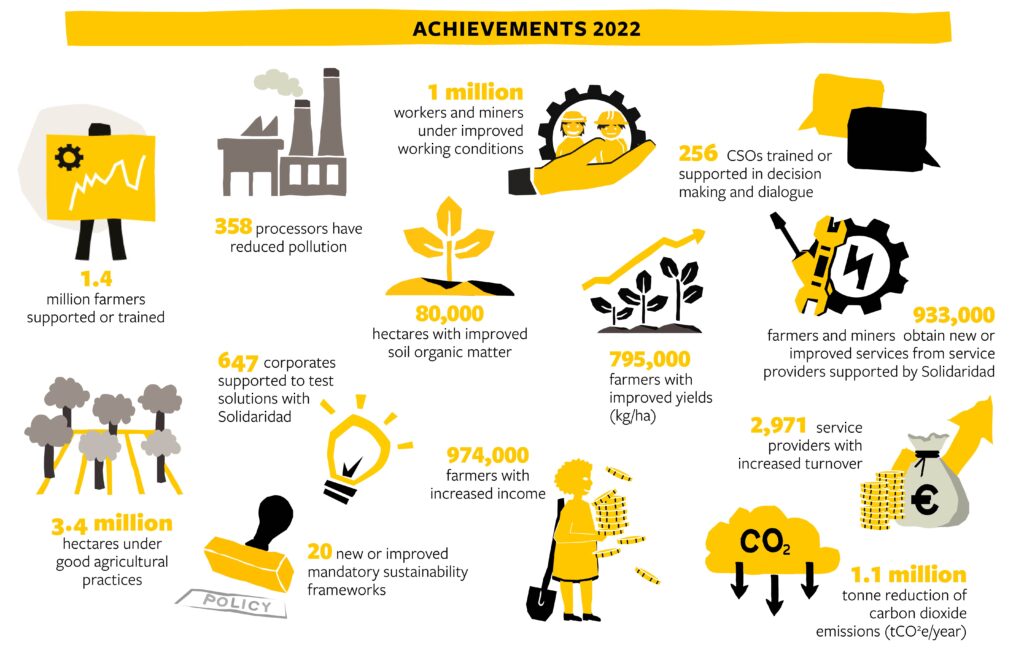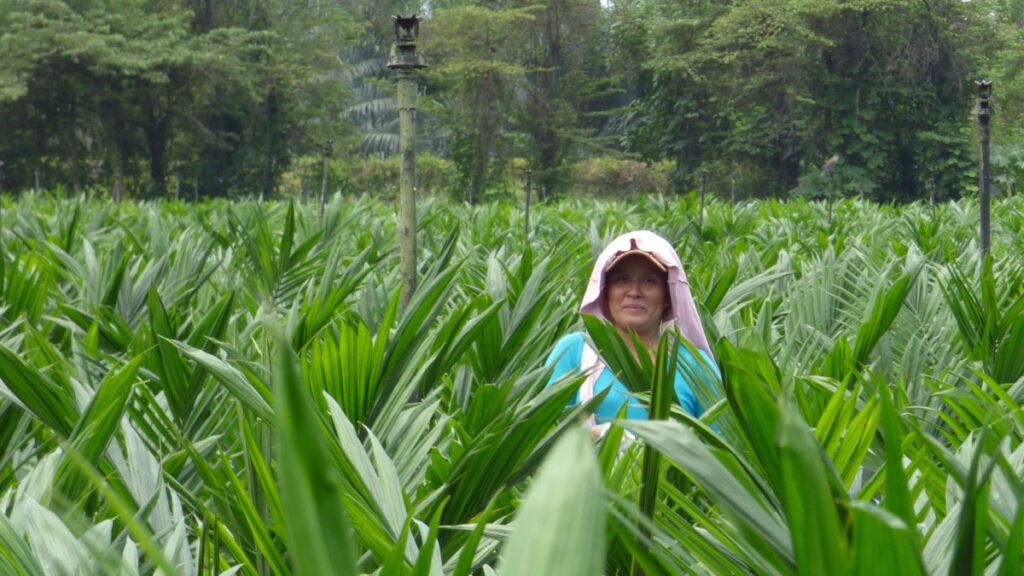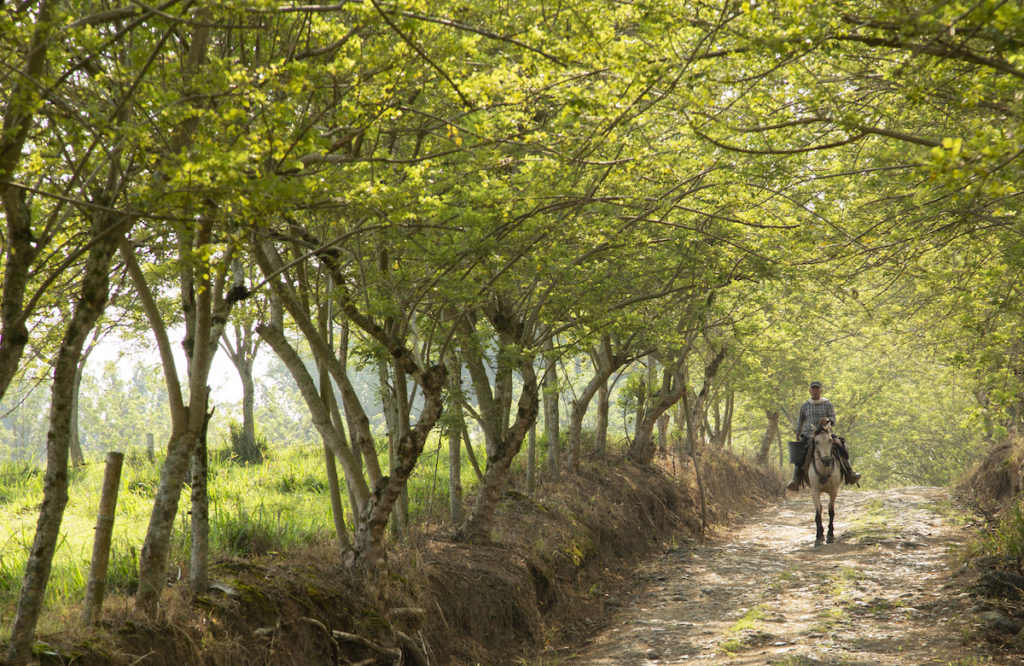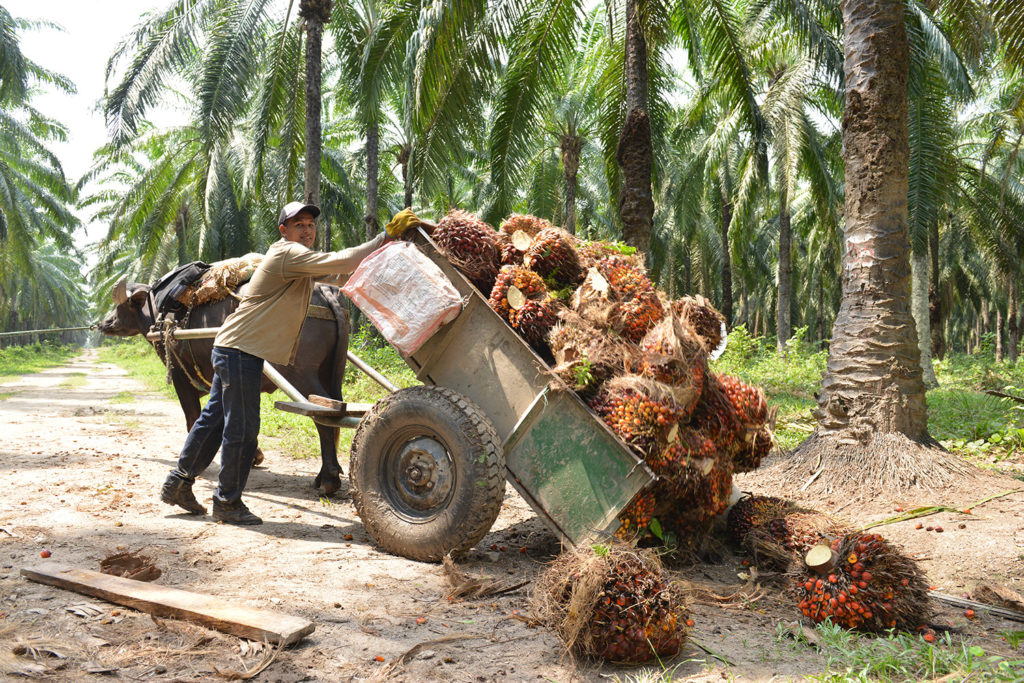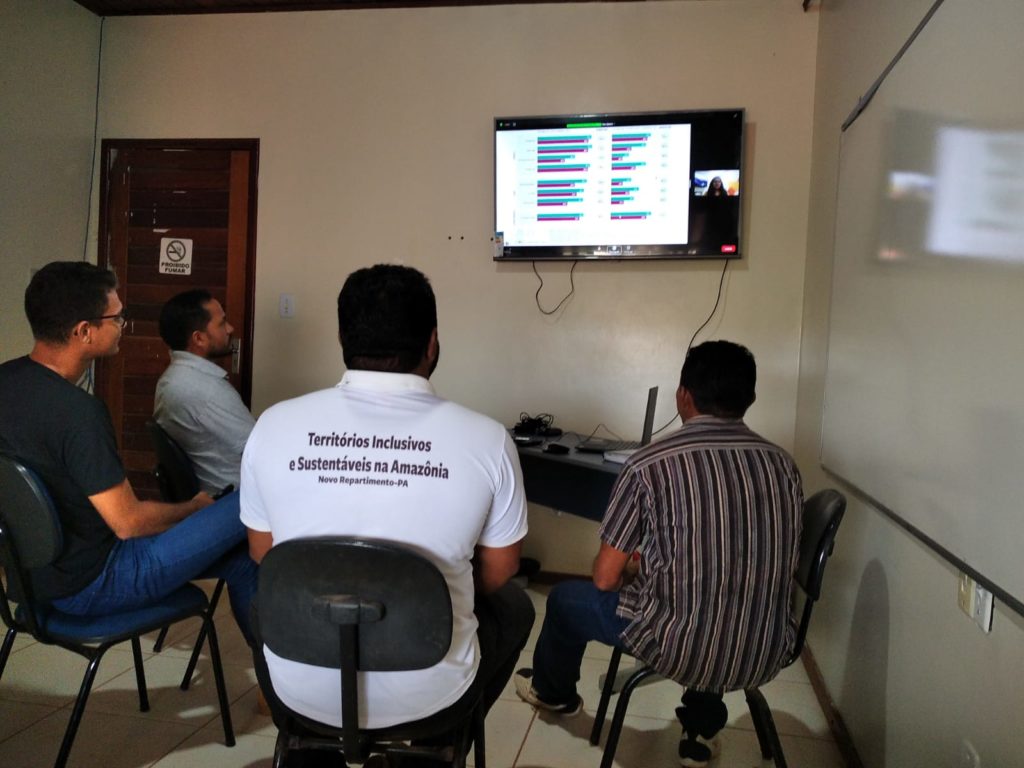The effects of climate change are all around us—in more frequent and severe weather events, increased prevalence of zoonotic diseases, and more erratic changes in seasons and harvests. Despite the corporate interests of some political leaders, the vast majority of the world agrees that the time has come to take bold actions. So, with the additional pressure of the Covid and post-Covid socioeconomic landscape, and the new priorities of changing political administrations around the world, the question becomes: how? How do we fit together the puzzle pieces of climate change mitigation, increasing migratory patterns and food systems sustainability with an incredible diversity in ecosystems, population and economic structures, and interests?
At Solidaridad, we believe a bottom up approach driven by small-scale farmers and workers, combined with cross sector collaboration and transparent, open dialogue will create the foundations for truly sustainable solutions and transformative change. And, aligning interests and priorities for diverse stakeholders isn’t always as hard as it seems. In Central and North America, migration, agricultural supply chains, and climate change have, for years, been among the top concerns for the region’s leaders and supply chain actors. And with a young population, the pressure on jobs, food and land will only grow in the coming decades. Funding partners have only just recently begun to connect the dots and provide opportunities to tackle these issues holistically.
The evidence is there: root causes of migration
Numerous studies have been published over the last decade demonstrating the clear linkage between migration from the Northern Triangle and decreased rainfall, prolonged drought, the impact of the 2020 hurricanes and Covid pandemic, and low coffee prices, among other issues. Despite this, there was, for years, a lag in funding for agricultural activities as compared with growing funding for economic and military interventions.
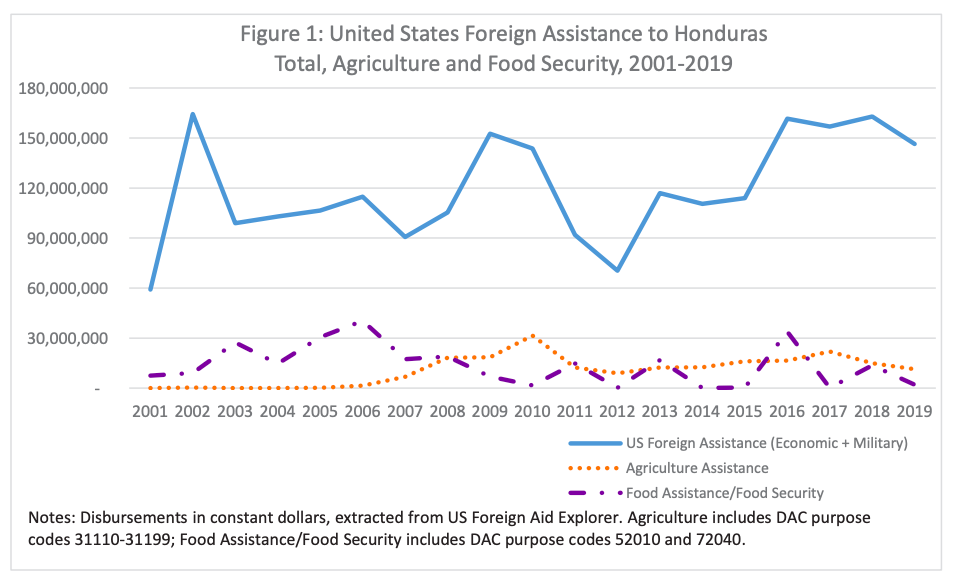
The tide is starting to turn. At the pre-summit for the UN Food Systems Summit, held in July, the Inter-American Institute for Cooperation on Agriculture presented 16 key messages to improve food systems. At the center of their messages are the smallholder farmers and workers, appropriately highlighted as an “essential and central link in the food system.” Similarly, the Biden Administration has made meaningful commitments towards prioritizing food security and climate-smart agriculture along with digital and financial inclusion in the region.
Lessons learned
The moment is ripe for creating lasting and meaningful change, if we act strategically and reflect on lessons learned from actors and farmers who have been engaged in this work for decades. Through our partnerships in Central America, Solidaridad has been able to make strides in boosting farmer resilience to shocks and risks, increasing collaboration between value chain actors, and building stability for families and communities through livelihood diversification and community-based approaches. Below are a handful of examples.
Building cocoa farmers’ capacity strengthens family income
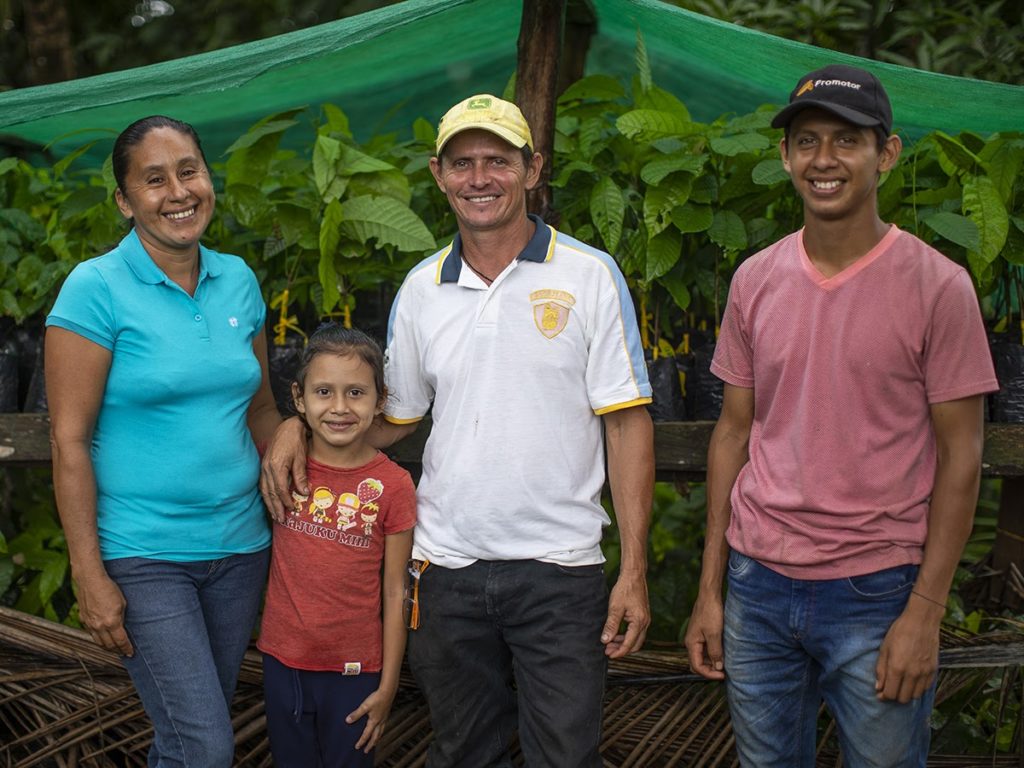
Smallholders reap multiple benefits by learning about climate-smart and regenerative practices required to establish and maintain an agroforestry system. Since 2017, we have supported smallholder farmers from Nicaragua’s South Caribbean Coast Autonomous Region by providing technical assistance, through demonstration plots, farmer exchanges and farmer field schools, and facilitating dialogue for zero deforestation commitments, among others. We trained 162 men, 57 women and 163 youth in Nicaragua by creating a network of service providers called promoters. Promoters receive monthly training through farmer field schools and provide technical assistance to their peers within the community. Promoters also learn to use technology to monitor good practices in the field. Find out what the experience meant for farmer participants, Santos and Esmerelda.
Securing coffee producer success for smallholders in Mexico
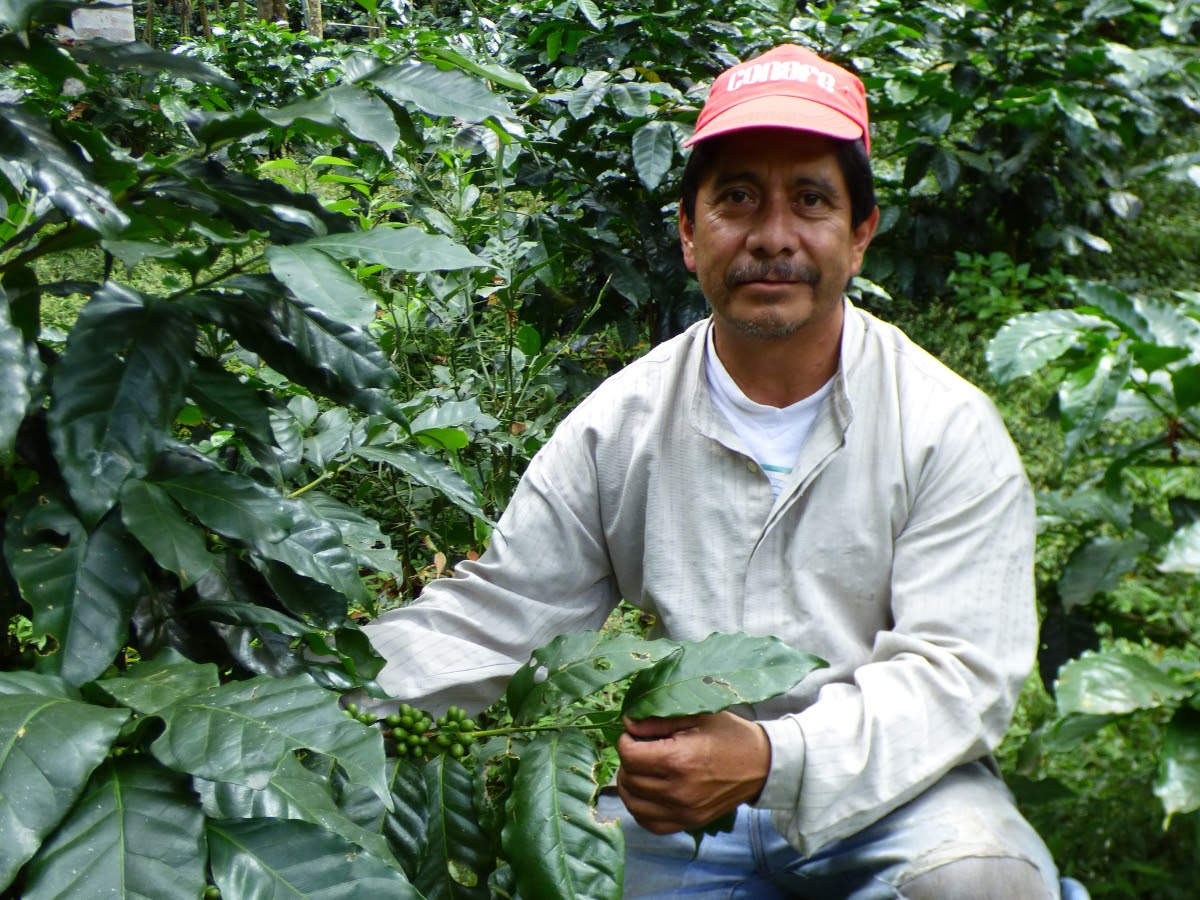
The coffee rust epidemic hit hard in 2012 and the effects of this infectious agent continue to devastate plantations to this day. René Hernández’s story is a testimony to how the social aspect of the crop plays an important role in smallholder coffee producer prosperity and success, and can reduce migration north. René Hernández inherited his plantation from his aunt, who years ago had planted, through traditional methods, thousands of plants that once produced up to 80 quintals of coffee per season. In 2013, Solidaridad launched Climate Smart Coffee in Latin America, a model which builds the capacity of smallholders to do more with less, thereby fostering coffee producer prosperity and success. This model is under replication in Nicaragua, Honduras and Guatemala, and has evolved to include payment for ecosystem services that further enhance farmer resilience as well as climate mitigation. Read Rene’s story to learn more about how he increased production yields by implementing the model.
Working with stakeholders to drive sector transformation in palm oil
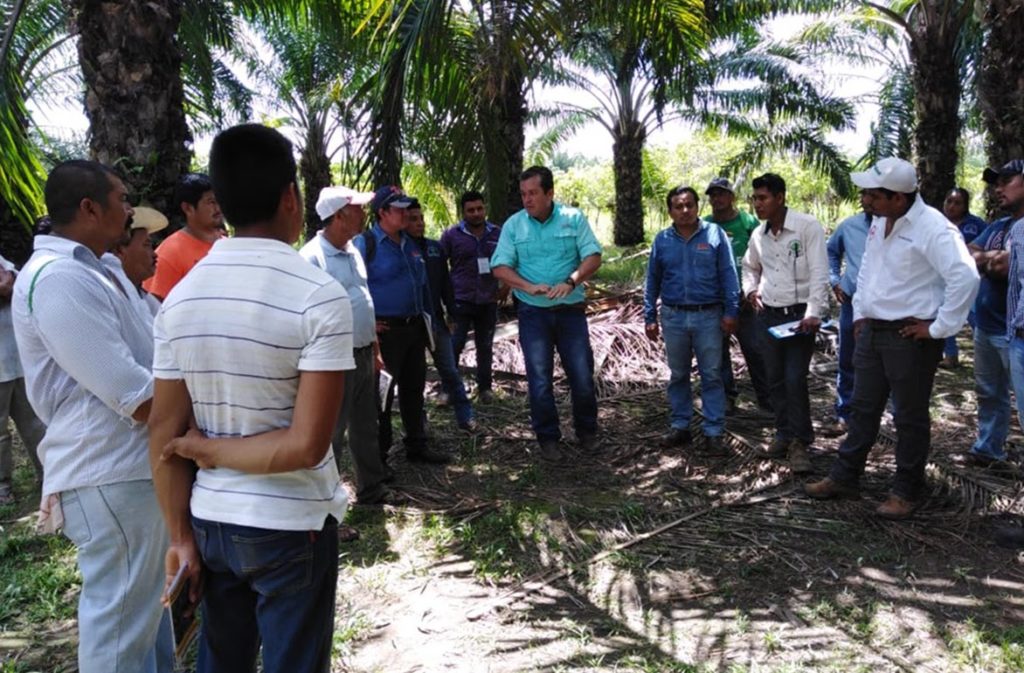
Through the Mesoamerican Palm Oil Alliance, MAPA, Solidaridad gathers more than 55,000 stakeholders along the entire palm oil supply chain in the region—from small- and large-scale producers and extraction plants to buyers and civil society. From 2016 to 2021, Solidaridad provides technical assistance to palm oil companies and producers, including distributing training manuals and digitized field logs —which help farmers gain insight into the impacts of improved practices, supports timely decision-making, and increases transparency and traceability in the supply chain. More than 306,000 hectares are now managed under good practices in Mexico, Guatemala, Honduras and Nicaragua. Read more about the results of this transformative initiative.
Leveraging climate information for smallholder farming decisions in Nicaragua
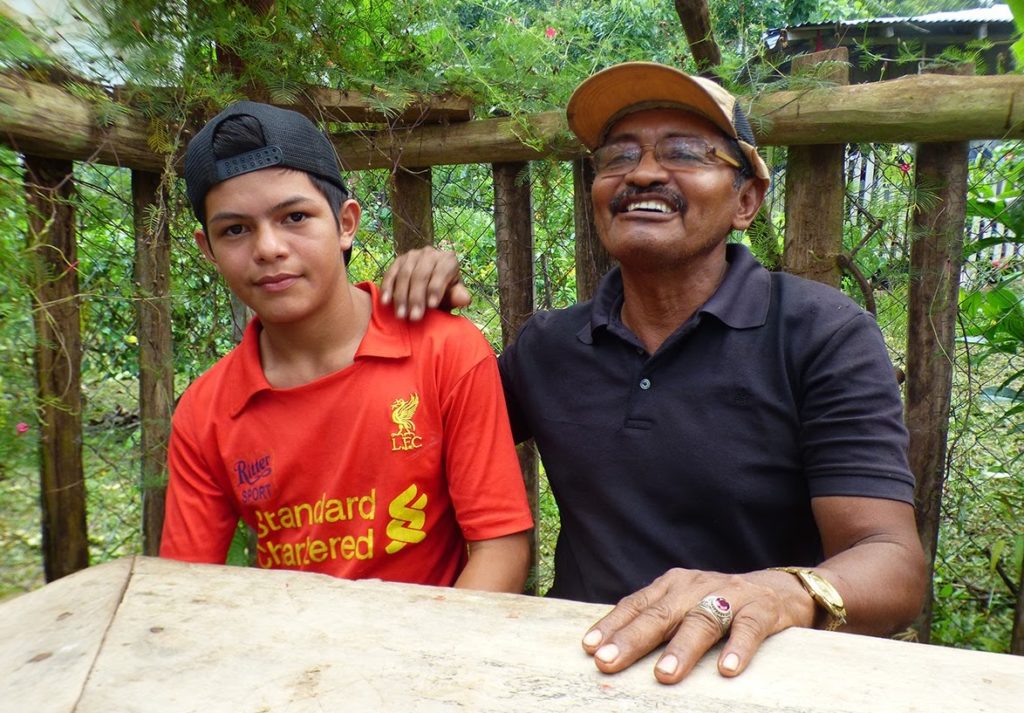
Jordi Amador Escoto was 13 years old when Engineer Erick Leiva arrived at his grandfather Mercedes’ plot to request authorization to place a weather station that would feed a climate data analysis system for the area, with the aim of supporting the community’s farmers in decision making for crop management. Producers receive a weather bulletin through SMS to provide timely response to climate conditions.
In total, 5 weather stations have been installed between 2018 and 2020 in different commodity landscapes since the beginning of the pilot. The 2018 pilot project continues to expand, and private sector partners have recently assumed full maintenance of the stations to ensure the sustainability of the intervention. The climatic information is combined with phenological data captured by farmers identified by Solidaridad, thereby facilitating analysis of how the different climatic conditions influence the physiological behavior of the crops. Read about Jordi’s and Mercedes’s journey with climate information.
Let’s work together to strengthen food systems and combat climate change
The answers are right in front of us; with careful examination of the research and evidence connecting the critical issues of our time, and thoughtful consultation of the farmers and workers who lie at the heart of these economies and value chains, we can act collaboratively to transform our food systems and create a more sustainable future for people and the planet.

